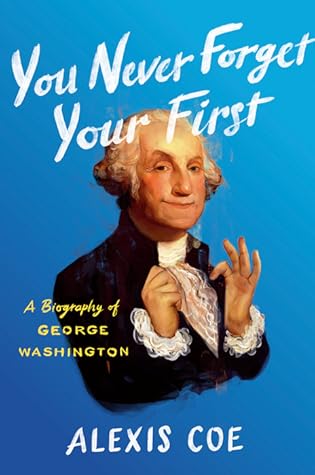More on this book
Community
Kindle Notes & Highlights
In a young, monarchy-weary America, Washington’s lack of heirs gave him a distinct political advantage; it comforted people to know that he had no bloodline to preserve, no power-hungry scion to worry about.
Everyone knows that, in the absence of evidence to the contrary, a woman is probably a shrew. And shrews, of course, need taming.
America loves a self-made man, particularly one who overcomes the manipulations of a petty woman to seize his great destiny.
Tanacharison, the Seneca chief, knew just what to call the twenty-one-year-old upstart who summoned him in 1753. His Christian name might have been George Washington, but Tanacharison, known to Europeans as the “Half-King,” would call him “Conotocarious.” In English, it translated to Town Taker, or Devourer of Villages.
If the American Revolution had not taken place, Washington would probably be remembered today as the instigator of humanity’s first world war, one that lasted seven years.
Under the British imperial system, even the most enterprising colonist would remain second class. An Englishman who held a lower rank could order him around, and worse, that Englishman made more money than he did.
Washington had yet to grasp that any value they saw in merit and loyalty paled beside the importance of birthright.
Although estates like Mount Vernon are called “plantations,” it’s a word inflected with genteel romanticism. If we look at what actually occurred there, we see them for what they were: forced-labor camps.9
In London, writer Samuel Johnson railed against the hypocrisy of “these demigods of independence” in a forty-page pamphlet asking, “How is it that we hear the loudest yelps for liberty among the drivers of negroes?”4
Washington “lost more battles than any victorious general in modern history.”2
To pigeonhole him as a military leader is to underestimate how much the fledgling government needed Washington as a diplomat and political strategist. His ability to manage large-scale combat while also running spy rings and shadow and propaganda campaigns in enemy-occupied areas is a significant—and often overlooked—part of the Revolutionary War.
“Washington did not really outfight the British,” the British spymaster Major George Beckwith said. “He simply outspied us.”23
He worried about financial solvency, economic vitality, and the constant bickering and squabbling among state representatives. All of it signaled division and weakness rather than unity and strength.
King George himself allegedly said, upon hearing of the plan, “If [Washington] does that, he will be the greatest man in the world.” America would spark an age of revolutions. When France experienced its own, led by Napoleon Bonaparte, he did not step down from power, but rather declared himself emperor. Years later, he would say, “They wanted me to be another Washington.”13 But he couldn’t be. No one could.
Ben Franklin had described Adams, Jefferson added, as “Always an honest man, often a great one, but sometimes absolutely mad.”1
Political partisanship, Washington predicted, would reduce the government to a crowd of bickering representatives who were very good at thwarting each other but got very little accomplished for their constituents. And for all his talk of unity, he had come to see people as for or against his administration and had little patience for criticism. Unbridled partisanship was his greatest fear, and his greatest failure was that he became increasingly partisan.


